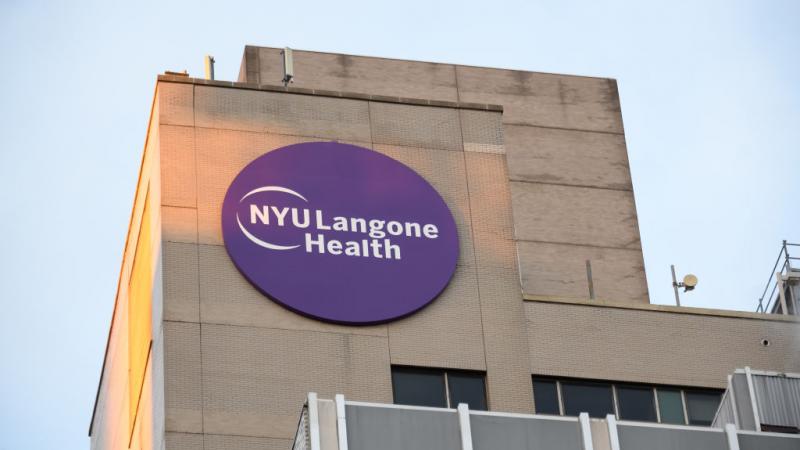Former NIH whistleblower: Political motives of entrenched bureaucrats harming public health
"You can be sure that that a lot of the reasons these reports aren't showing up is for political reasons, Dr. Jonathan Fishbein says.
The government's dramatic walk-back of COVID-19 policies and admission of lapses in medical clinical trials this week are proof that the political motives of entrenched bureaucrats are undermining the credibility and performance of public health agencies, a former National Institutes of Health (NIH) whistleblower warns.
"I think the problem is that there are a lot of entrenched bureaucrats in government and it's getting rid of that layer," Dr. Jonathan Fishbein told Just the News, Not Noise television show on Wednesday. "Fortunately, what we're finding with other organizations in the government, other branches, that there's such a deep state.
"There are people who have worked for the government for years and have a certain political philosophy and they undermine what Congress wants and what the administration wants sometimes," he added.
Fishbein's comments came the same day that Centers for Disease Control and Prevention's Director Rochelle Walensky excoriated the performance of her agency during the COVID-19 pandemic and announced sweeping changes. A day earlier, a government investigation confirmed NIH medical research experiments have routinely failed to disclose required information.
Fishbein highlighted similar concerns more than a decade ago, blowing the whistle on NIH research under the auspices of Dr. Anthony Fauci back in 2004-05. He was fired but later restored to his job when his allegations of ethical and scientific lapses were confirmed. He said problems persist today.
"So yeah, science and medicine have become very corrupt, and very politicized," he said.
Host John Solomon asked about a recent report from the Health and Human Services Inspector General which revealed that the NIH failed to comply with transparency requirements. Fishbein said federal grant recipients are afraid to disclose scientific findings that run contrary to the preferred narrative of federal agency bosses for fear of putting future funding at risk.
"So you've got to wonder why there was non-compliance," he said. "And I think you hit it at the beginning...that if you've got research findings that go against, basically the agenda, or the motives of the government... Alright, then that endangers your future."
"So you'd say, 'Well, naturally, if you don't follow the rules, you don't do the reports, you should be punished.' But if your results are such that they don't comply with what the government wants the public to believe, alright, you keep those reports secret to continue your funding," Fishbein continued.
"Say, for example, someone does come out with a research findings, that... it's actually very, very harmful to do this gender affirming surgery and give the transitioning hormones to young people, that actually causes more suicide, hurts them more, and should they not be doing the gender affirming procedures. Right? If you've come out with that, your research grants would disappear, because the government is supporting those kinds of medical procedures," he explained.
"And you can be sure that a lot of the reasons these reports aren't showing up is for political reasons."
Co-host Amanda Head then pointed to bombshell data showing that 44% of pregnant women who participated in the Pfizer clinical trials suffered miscarriages, asking if the revelation suggested Americans need to be more skeptical of scientific and health leaders.
"We do," he replied. "And I think the American public as a result of all this has become much more skeptical...the people who were skeptics at the beginning were labeled conspiracy theorists, and they were marginalized and lost their jobs that they didn't follow the government's line on all of this."
"[A] lot of prominent physicians lost their jobs," he noted. "And what we're learning now is a lot of those conspiracies, there's a lot of truth to what those people were saying."
"But the current atmosphere in medicine and science has become so political, and so corrupt," he concluded. "And if you don't follow the party line, the government line, you pay a very, very high price. And that's the lesson I learned nearly 20 years ago."
















